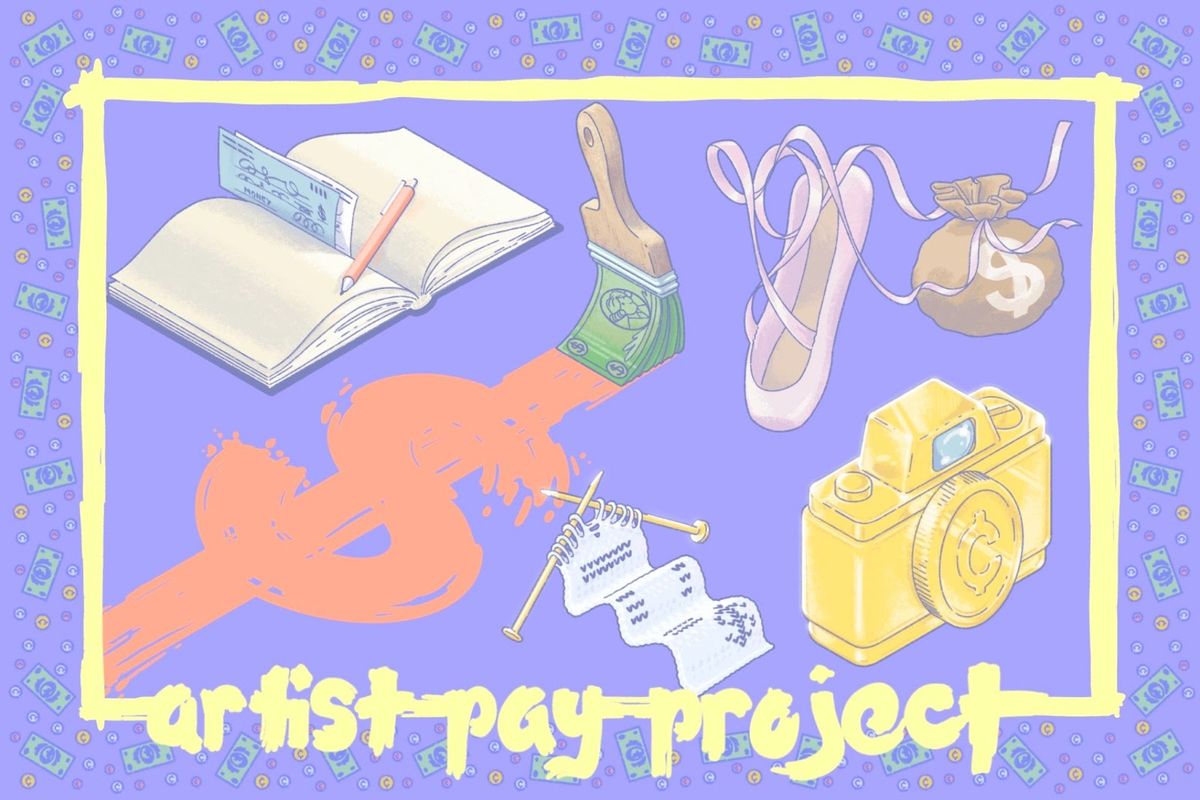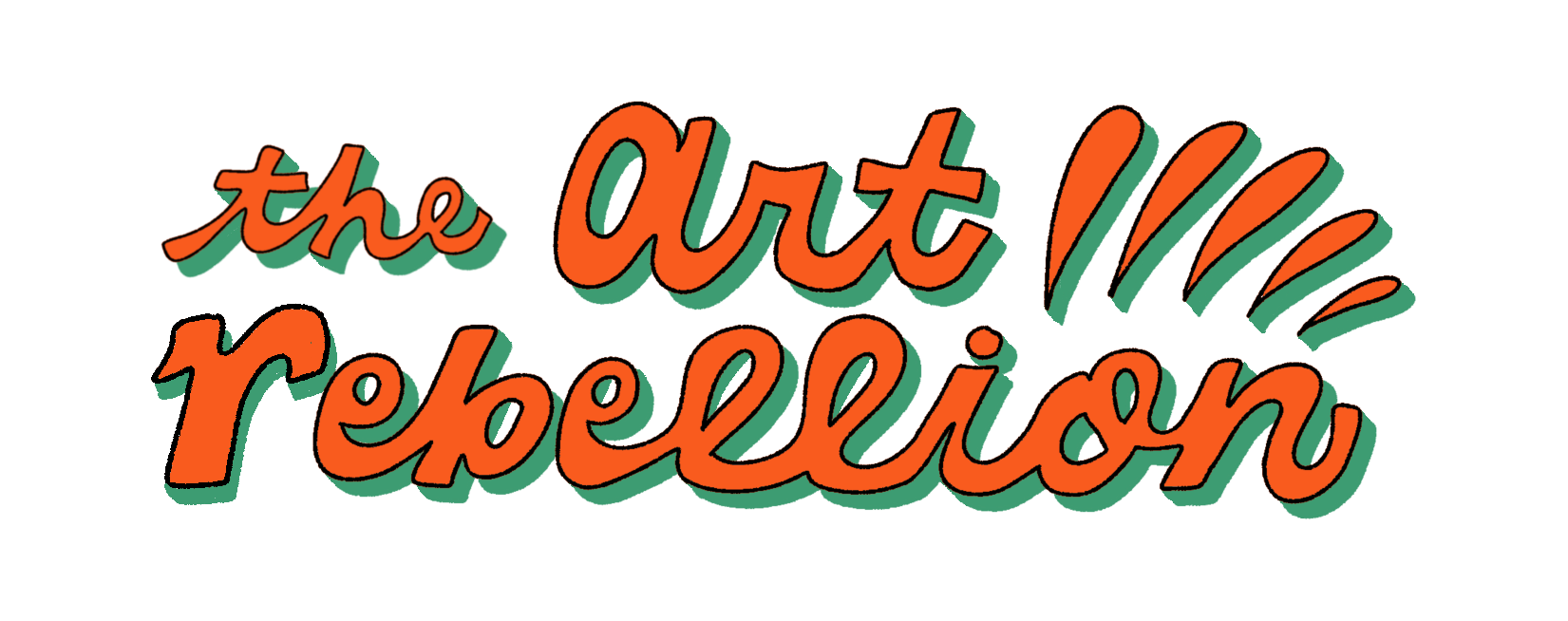Artist $napshot: Detroit-based artist and writer
Living here allows me to maintain a pretty comfortable lifestyle and focus on my art, whereas I would not necessarily be afforded the same opportunity elsewhere

The Artist Pay Project is a series exploring how artists in the U.S. survive and thrive amid a cost of living crisis.
This Artist $napshot tells the story of a 30-year-old artist and writer who makes $26,000 a year.
Survey
Art Practice: Artist and writer
Location: Detroit, MI
Age: 30
Pronouns: She/Her
Earnings
Income:
$26,000 a year
How much of your income is from your art practice?
Less than $1,000 per year
Where does the rest of your income come from?
Floral design jobs, writing and editing gigs
How much were you paid for recent freelance or contract work related to your art practice?
- $100 from a New York art gallery for a poem to accompany an exhibition
- $40 for an essay in a local publication
- $375 for an artist review in another local publication
How do you price your art?
I don’t sell my work often. Usually for friends I will sell pieces for very cheap (around $100 and less). Or give it away for free/trade. I have sold works to patrons and young collectors for upwards of a few hundred dollars, but nothing significant. Usually I will suggest a price based on what I think it’s worth, and what I think they realistically can afford, and go from there. Overall range $50 to $500 per piece.
Expenses
Housing:
$425 a month. I split expenses with my partner, we own a house.
What are your major monthly expenses?
- Food: about $400 a month
- Car maintenance and fuel: average $150 a month
- Entertainment (concerts, parties): about $150 a month
Do you have any expenses related to your art practice?
I buy supplies as I can afford them/ as needed for projects. It typically varies between $20 to $100 a month, sometimes more. I also occasionally travel for art shows and residencies that may cost anywhere from $300 to $800 per trip. And I pay $20 a month for Adobe Dreamweaver.
Larger financial picture
Do you have any financial support from outside sources?
No
Have you received any grants to support your art?
No
Do you have health insurance?
Yes, I have Medicaid
Do you have any debt?
No
Do you have any savings?
$2,000
Did you pursue higher education?
Yes, I have a BFA in photography.
Anything else you’d like to share?
In my experience as an artist, usually I end up putting more money into projects than I get out of them. It is more valuable to me to have these experiences than to be financially wealthy. There are not many places an artist can afford to work part time and also pursue an art practice, while being surrounded by a rich culture of music and community. Detroit is a very special city in that sense, with many untapped resources. Living here allows me to maintain a pretty comfortable lifestyle and focus on my art, whereas I would not necessarily be afforded the same opportunity elsewhere.
Q&A
Responses edited lightly for length and clarity.
At the end of your survey, you mention that there's not many places where artists can afford to live and work. And Detroit has been that for you. Could you speak a bit more about your decision to live and make art in Detroit?
I grew up in the suburbs of Detroit. Then I moved down here when I was 20. I was going to college here and I basically lived here since then. I lived on the East Coast for a year after graduating college and I really liked it out there. A lot of my friends live out there and in L.A. They usually have to have more financial support or they work all the time in order to be able to afford to still have an art practice. I like it here because you don't have to necessarily work full time or work multiple jobs to afford to live. You can work part time and do what you want to do.
How many hours a week do you spend on your art practice and how much do you spend on your other jobs?
It varies. I have had a lot of full time jobs in the past. Sometimes I work 40 hours a week. Sometimes I work 10 hours a week. And I work on my other art projects pretty much every day. I'm always doing either a writing or an art project.
How do you feel about your financial security overall?
It's precarious. It's a tough question because I've never really had a lot of money my whole life. So to me, it's not really important to make a lot of money. As long as I have the basic things that I need, like a roof over my head and food, I can always find a way to make it work. It definitely would be easier if I had more money, but I don't think it's a necessity.
Less than $1,000 per year of your income is from your art practice. Do you hope to shift that percentage over time or are you comfortable with how you bring in your money now?
I don't know if it will shift. I feel very strongly about making art that I want to make and not catering my art to a specific audience or making things that I think will sell. I'm more concerned with making things that are authentic to me and I'd rather find money through working for other businesses rather than compromising my art to fit a client's request. I don't really do commissions or commercial work, really.
What are some of the biggest challenges you’ve experienced when it comes to being able to make a living and make art at the same time?
The biggest issue is probably just not getting paid enough. I've worked on different jobs and I've never made more on an hourly job than about $21 an hour. I think that I'm underpaid and I think a lot of people are underpaid. If we were paid fairly, we'd have more funding to do these creative projects.
What does fair pay look like for you? Do you have a specific number that you're thinking of?
It depends on the work and it depends on your experience as well. But I think more than $20 an hour.
Do you find it tough to be paid at that rate?
It's rare to come across an entry level position in the arts that's gonna pay $20 an hour as a starting wage. More if it's in education. I feel like education jobs pay more, but it also depends. I have friends that are adjunct professors and they don't get paid fairly. They want to unionize to try and get more pay because it's so rough.
What resources do you think would help you the most as an artist trying to make a living?
Higher pay for workers in general. National funding, which is something that I feel is non-existent in the U.S. What would also be helpful would be more shared community resources in terms of food, housing, studio space, rather than having these giant lump sums of cash that everyone has to compete for. Maybe allocating those funds to community resources that multiple artists can share and to use together.
You say in your survey that you haven't received any grant funding. Is that something that you're interested in pursuing?
I definitely have applied to some different local and national grants. I haven't got one yet — hopefully one day.
Do you have any thoughts about the process or feelings about grants in general?
They're kind of new to me. It's always tough applying for something when you don't know who's going to be judging it. It's helpful when I can apply for something where I can see who's on the panel or what they might be expecting. But I think even getting rejected from grants, I feel like it's such a good experience to help refine your artist statement, your practice, and tighten up the wording of who you are, and how you present yourself as an artist. So even if you don't get in, I feel like that's a really good tool.
Do you believe that pay transparency can help other artists? And if yes, then how?
Absolutely. I've worked in places before, for example, where men and women are doing the same job and everyone isn't paid the same. In a situation like that, it's very important for people to be communicating with each other. I feel like we need to raise the bar, because I don't think anyone's getting paid fairly. It's up to us to raise the bar and get what we deserve.
Read more about the Artist Pay Project.
